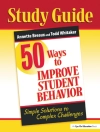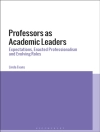Explores the trend of lifelong learning in Japan as a means to deal with risk in a neoliberal era.
Akihiro Ogawa explores Japan’s recent embrace of lifelong learning as a means by which a neoliberal state deals with risk. Lifelong learning has been heavily promoted by Japan’s policymakers, and statistics find one-third of Japanese people engaged in some form of these activities. Activities that increase abilities and improve health help manage the insecurity that comes with Japan’s new economic order and increased income disparity. Ogawa notes that the state attempts to integrate the divided and polarized Japanese population through a newly imagined collectivity, atarashii kōkyō or the New Public Commons, a concept that attempts to redefine the boundaries of moral responsibility between the state and the individual, with greater emphasis on the virtues of self-regulation. He discusses the history of lifelong learning in Japan, grassroots efforts to create an entrepreneurial self, community schools that also function as centers for problem solving, vocational education, and career education.
表中的内容
Illustrations
Preface
1. Introduction
Why Lifelong Learning Now?
Lifelong Learning as a Global Trend
Risk: An Analytical Tool
Risk: A Japanese Context
Methods
Overview of Chapters
2. Japan’s Lifelong Learning: History, Policies, and Practices
Three Key Terms
Social Education
Lifelong Education
Lifelong Learning
Lifelong Learning Promotion Law
Lifelong Learning Council Report in 1992
Focus on the Local: Developments in the 1990s
3. Risk Management by a Neoliberal State
Lifelong Learning and Risk
Japan’s Lifelong Learning in the 2000s
‘Comprehensive Knowledge’
Local Communities: Locations for Realizing the New Public Commons
Neoliberal Knowledge
4. The New Public Commons
The New Public Commons
The Bunka Borantia
Civic Knowledge
‘Entrepreneurial Self’ for Constructing Civic Knowledge
Jukugi (Due Deliberation)
Real Jukugi
New Public Commons as a New Growth Strategy
5. The Japanese ‘Community School’
Revival of Communication
The Japanese ‘Community School’ System
Ikiru Chikara (Zest for Living)
Integrating School Education and Social Education
A Varied Landscape
6. Becoming a Social Entrepreneur
Why Don’t You Initiate a New Style of Working?
Vocational Training in Japan
After the Lehman Shock
The Knowledge and Skills Required to Support the New Public Commons
Becoming a Social Entrepreneur: A Challenging Opportunity
Taking Risks to Survive in the New Labor Market
Postscript
7. New Knowledge for Youth
Suicide among Young People
‘Career Education’
Changing Trends in Universities
Toward Social Inclusion
Developing Citizens
Afterword: Kizuna
Appendices
Appendix 1. Japan’s Lifelong Learning in the 2000s
Appendix 2. Major Legal and Policy Developments of Japan’s Lifelong Learning (1947–2011)
Appendix 3. List of Civic Knowledge Sources
Notes
Japanese Glossary
References
Index
关于作者
Akihiro Ogawa is Professor of Japanese Studies at the Asia Institute, the University of Melbourne, Australia. He is the author of The Failure of Civil Society? The Third Sector and the State in Contemporary Japan, also published by SUNY Press.












